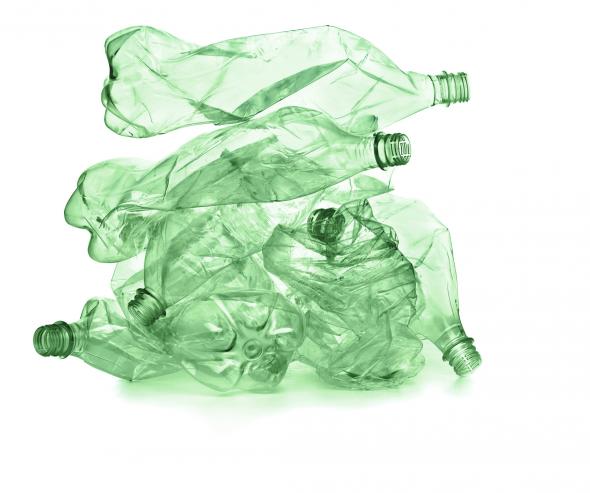27 September 2010: Household plastic packaging waste treatment

Eco-Emballages and Valorplast commit to greater neutrality vis-à-vis local and regional administrations
in order to ensure full competition between buyers
Following a referral by DKT International, the Autorité de la concurrence issues today a decision making compulsory the commitments made by Eco-Emballages and Valorplast in the sector of waste collection and recovery of household plastic packaging.
DKT, a firm trading in plastic waste for its recycling purposes, considered that it had been victim of exclusionary practices at the time of the renewal of the contract between Eco-Emballages and the regional authorities in 2005 and 2006. It referred to the Autorité de la concurrence and requested interim measures during the investigation.
In its decision 09-D-12 of 18 March 2009, the Autorité de la concurrence had considered that the conditions were not met to issue urgent interim measures (decision confirmed by the Paris Court of Appeal on 11 November 2009), but decided to examine the case on the merits.
The sector in question
Local and regional administrations sell their separated household plastic packaging waste to buyers that, unless they recycle themselves, supply such waste to recycling companies for the manufacturing of new products (new packaging, fur for cold-weather gear, swimming pools, surfaces for sports fields, etc.).
For the local administrations, three recovery types are possible within the framework of a contract signed with Eco-Emballages for 6 years:
- across the territory, they can sell at a uniform price to Valorplast, a company primarily issuing from plastics manufacturers. Valorpast then sells the separated waste to various operators for it to be recycled;
- they can, since 2005, negotiate a price with a company that is a member of one of the two professional waste treatment federations (FNADE and FEDEREC);
- or, finally, they can look after the trading of their waste on their own, with the help of a specialized intermediary, if relevant. DKT wished to operate in this capacity.
Eco-Emballages is a firm approved as eco-organism by public authorities, to supervise the collection and reuse of packaging waste. Its task notably includes controlling, downstream of the recovery, the effective nature of waste recycling which impacts the payment of a subsidy to the local administrations aimed at covering part of the collection and separation expenses (support per separated tonne).
DKT claimed that it had been subjected to discriminatory requirements by Eco-Emballages and felt that the latter had adopted different behaviour that was detrimental to it, and intended to promote Valorplast.
The Autorité de la concurrence considers that greater competition should be allowed between buyers, while making more extensive options available to the local administrations
Eco-Emballages empirically granted or refused “non-objection” letters, without which a buyer had little chance of successfully approaching the authorities. Lacking in objectivity and transparency, this mechanism could serve as an entry barrier for new operators in the market for the recovery of plastic waste.
Other competition issues were put raised, notably regarding the contracts rigidity which made it difficult for the administrations to change their recovery options for 6 years, as well as the lack of neutrality of Eco-Emballages in the presentation of recovery options and recyclers.
The commitments of Eco-Emballages and of Valorplast
With the approach of the renewal of the Eco-Emballages approval (‘agrément’) by the Ministry for Ecology, Eco-Emballages and Valorplast proposed 11 measures in order to respond to the competition concerns raised by the Autorité. These proposals were put online on the Autorité’s website, in order to gather the views of interested third parties (market test of 8 April 2010).
The Autorité considers that the commitments finally proposed at the end of the procedure are likely to answer its competition concerns, and that they are of a credible and verifiable nature. The most significant of them are listed below.
The publication by Eco-Emballages, notably on the Internet, of an objective “vade mecum” for household plastic packaging waste recovery is an important element for developing free competition on the markets
Eco-Emballages also commits itself to no longer perform a validation in principle of a recycler, while abandoning its “non-objection” procedure. The local administrations will be provided with a “vade mecum” that will help them to make an enlightened choice, thanks to a neutral presentation of the rules applicable to various recovery methods.
The local administrations will be able to change recovery methods during the 6 years. Downstream competition will also be more stimulated
Valorplast and Eco-Emballages committed themselves to have their contracts include, for the local administrations that had initially selected Valorplast, a termination option available after 3 years, so that they can choose another recovery method. Inversely, an administration that had originally chosen a buyer from the second or third options will be able to change for Valorplast after having ended its previous contractual commitments. The Autorité de la concurrence considers that this commitment serves to reconcile the satisfactory stimulation of competition on the markets in question and the viability of Valorplast, which is subject to special obligations.
Finally, as the main buyer in France, Valorplast commits itself to offer available tonnages to recyclers that are not yet tied to it by long-term contracts.
> For more details, please consult the full text of the decision 10-D-29 of 27 September 2010
